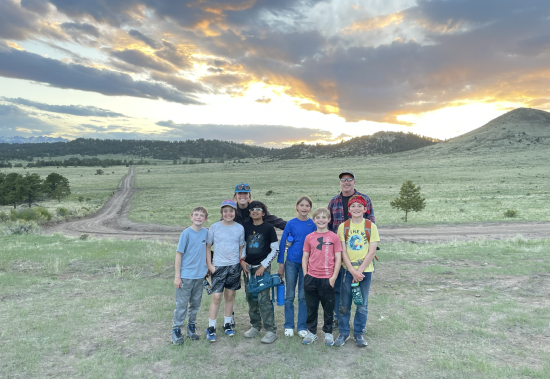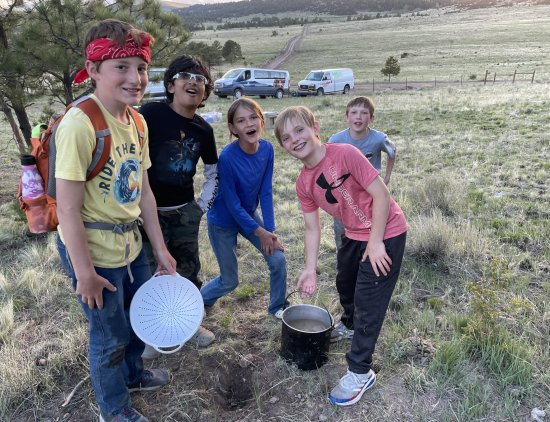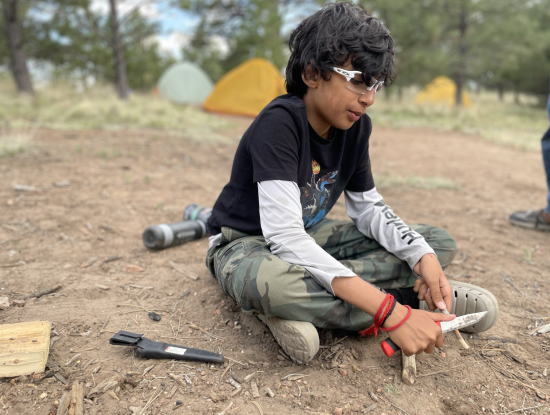Littleton Academy students ventured to Mission: Wolf to learn about wolves’ key part in our ecosystems. Written by CI Instructor Tucker Knight.

Cottonwood Institute scooped up 19 Littleton Academy students this Memorial Day Weekend for an end-of-school celebration trip. Students realized quickly that although school was officially out, the learning had yet to begin.
Arriving at Mission:Wolf Saturday afternoon, students were tasked with a riddle: how do wolves bring fish cold water? These 6th graders were so sharp, they immediately solved a riddle that takes most trips the entire weekend. Wolves are a keystone species, affecting all aspects of their ecosystem, even fish! In places such as the Greater Yellowstone Ecosystem, the extirpation of wolves caused an overpopulation of elk, which overgrazed the willow trees near rivers, triggering the riverbanks to erode, and consequently causing murkier and warmer water for the fish. This is just one of the many examples of how a top predator can affect seemingly unrelated parts of their ecosystem.
One student shared that wolves are crepuscular, meaning they are most active at dawn and dusk. This lesson cemented when kids were woken up early in their tents by howling wolves. On day two, students learned why wolves are essential to Colorado’s ecosystems, how to read wolves’ behaviors, and how to respectfully interact with them. Then, it was time to meet the wolves! We piled into Zeb’s cage one by one, calming sitting as Zeb feigned disinterest. Students met several other wolves, scratching their chests and baring their teeth as greeting. A student favorite was Yden, who was so excited to meet students that she would bare teeth with each and every one of them. Having a wolf lick your teeth can be intimidating, but students gently responded by looking her in the eyes and leaning in.
After seeing just how special each wolf is, students participated in service projects as a sustainable way to give back to the wolves. One group of students helped slice horse meat to feed the wolves. Although this seemed like a gnarly task at first, students were challenged to view the bigger picture of the circle of life: in this case, that the meat from the horse can be reused and not wasted. Instructors used this opportunity to introduce the concept of “challenge by choice.” Students were invited to self-reflect on how they’d like to challenge themselves, both in this instance and throughout the trip. Those who felt comfortable were able to help with the feeding prep, and others were able to safely advocate to challenge themselves in a different way or at a different time. This second group helped de-nail wood in order to repurpose flooring for an arts center. The students worked so hard and with so much joy to complete their chosen task. Then both groups watched the wolves “wolf” down their meat chunks in approximately two minutes. It was incredible to see how much effort and love went into feeding the wolves, and how quickly the meat disappeared.
On the last night, students ate s’mores around a campfire and went for a night hike. The stars were out and students spent a moment of quiet together. Students learned how to locate the north star and pondered about which planet was shining so bright. After a good night’s sleep, students headed home for a summer of stories.
Thank you so much for joining us on this special trip!


